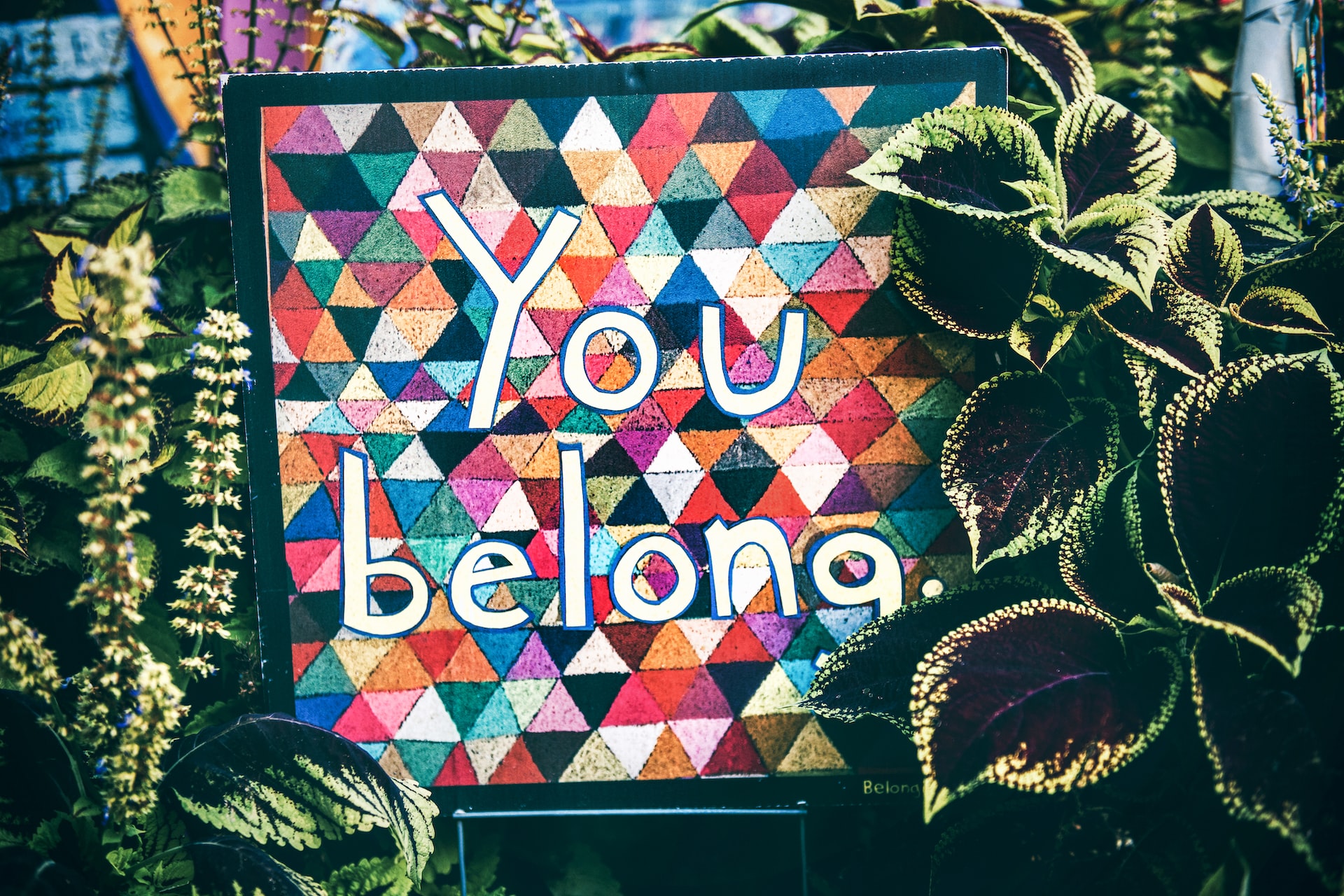Trauma Survivors don’t like making mistakes. This is me. I am that trauma survivor. You might be, too.
Sometimes people think that because I’ve been in trauma and grief recovery for almost two decades that “I’ve got it all figured out.”
I WISH! I work hard, and I have come a long way, and I STILL MAKE MISTAKES.
Oh my word, you have no idea HOW MUCH I have wanted a finish line. As in, we’re going along, working on our trauma and grief recovery, processing away, and then – boom – we reach the finish line and we’re done!
I CANNOT TELL YOU HOW MANY YEARS I PROCESSED THIS IN THERAPY.
Trauma and grief recovery are not like that. There is no “done.”
There is growth, development, health, and even – dare I say – happiness! When we participate in trauma recovery, we get to LIVE A LIFE THAT IS NOT CONTROLLED BY PAST TRAUMA.
Sometimes, though, we can slip back into trauma responses and make mistakes.
The Frozen Ball of Fear
As a trauma survivor in recovery, I’m used to being aware of my surroundings, other people in those surroundings, the energy around me, and what is going on in my body and brain. It’s like a low-key undercurrent of monitoring.
Sometimes, though, something will hit me out of nowhere and I find myself knocked right off my rocker.
This time, a friend of mine was very close to death. For two and a half weeks or so, doctors really didn’t know if they were going to make it.
It was sudden. One day, we were chatting on Messenger, and a couple of days later, they were in the hospital and then in a coma.
I felt a frozen ball of fear in my center from the very first day my friend was in the hospital. I knew that I couldn’t do much about this frozen ball of fear until it was ready to thaw. So I let it be, carrying it around.
Then my friend came out of the coma. There was a lot of work ahead, but overall things were stable.
And I LOST IT.
The Mistakes! UGH. So Many.

My husband and I have been together for almost five years, and one of the things I love about our relationship is that I get to apologize a lot (don’t worry, so does he).
Why do I love this? Because the act of apologizing shows me that we talk, even about difficult things. And while I’m getting better at directly and honestly stating my feelings in a calm way, I’m not perfect. I make mistakes.
When my friend came out of the coma and was okay, I was not direct or honest or calm. The frozen ball of fear dissolved into hot anger, relief, and an ocean of tears. I cannot overstate the waves of emotion that overcame me for about three days. I was irritable, oversensitive, angry, lashing out, sobbing inconsolably, wanting to scream and smash things – my inner toddler came to PLAY, and not in a good way.
And you guessed it, the bulk of it was directed at my husband. I MADE SO MANY MISTAKES.
Cleaning Up the Mess of Mistakes
The thing about emotions and feelings is that they do not last forever. They constantly move and change. And after about three days or so, I began to calm down. My brain started to reason and think clearly, my nervous system shifted to calm.
I had a mess to clean up. I had made mistakes. I found that a little triggering.
In my old trauma brain, I would have been overtaken by trauma responses and PTSD triggers (this is not the case now, as I don’t have PTSD symptoms thanks to my work with PTSD Remediation). I would immediately panic at the thought of someone not liking me or being mad at me. I would NEED to reconcile everything RIGHT NOW, even sacrificing my well-being to do so, and demand immediate resolution. My mind and body would go into fight or flight, obsessing about what I did and how to make it right.
All trauma responses that I do NOT do anymore.
This time, I had to admit to myself and my husband that I had gotten steamrolled by a new situation and my own emotional reaction. I have never had a friend in a coma, sure, AND I know how to regulate my nervous system under stress. The emotions got the best of me – as they sometimes do – and I fell down a spiral and my rational part that remembers how to regulate my nervous system went offline. I said things I wish I hadn’t said.
I took responsibility, admitted my mistakes, and apologized. Without triggers.
Making Mistakes LESS Triggering

It’s only recently – probably the last couple of years or so – that I’ve transitioned into this state of being. For SEVERAL years, every time I made a mistake, I felt like I was going to die.
So how did I make the transition? A lot of practice. Here are some strategies ~
1. Understand the Root: Perfectionism – This is really common for trauma survivors. Trying to “be perfect” feels safe, because if we’re perfect, our abusers won’t notice us and hurt us -and/or- will notice us and finally love us and give us what we need.
When I was growing up with my abusive and alcoholic parents, I did everything I could to be the perfect human. I got a 4.0 GPA in high school *and* college. I didn’t sleep for a good three years, sure, but I was academically “perfect.” There are many other examples of me trying to be “good enough,” especially for my abusive parents. Now I know that nothing could have ever been good enough for them. Now I call myself a “Recovering Perfectionist.”
2. No More Shame – Shame has a specific role for trauma survivors, and that is to disconnect us from our feelings to try and protect us. But we’re human, and as humans, we *need* to feel. So when making a mistake, look underneath the shame. What’s there? Disappointment? Regret? Acceptance that I’m human? Acceptance that I need to do something differently next time? These are the feelings to consider.
But you are NOT bad or stupid or whatever other vile things that Shame and the Inner Critic call you. YOU ARE HUMAN. YOU ARE ALLOWED TO MAKE MISTAKES. THAT IS PART OF BEING HUMAN.
Reconnecting With Yourself

3. Gain Perspective – When I make a mistake, I like to ask myself, “But Did You Die?” And the answer is no, I have not yet died from making a mistake. Many of my mistakes are small. For example, I didn’t nick an artery while doing brain surgery, I had a lot of Big Feelings when my friend was suspended between life and death. Big Feelings are, actually, a reasonable response to this situation, and I didn’t control them as much as I wish I had. Again, I’m human.
4. Connect With Your Body – If you can, begin connecting with your body. In my case, I saw that my body was trying to process through almost losing my friend, a really special person in my life. I had A TON of emotions, and obviously I was in the process of releasing those emotions.
Instead of ruminating on “all the mistakes I made,” I asked, “How can I help my body release this fear and grief?” I made a list of things to do – walking, getting a massage, a hot bath with epsom salts, sending my friend a card or flowers, crying and asking my husband to hold me, cooking – and turned my attention to those things, not as a distraction, but to help me.
5. Breathing – Always breathing. There are breathing techniques, but really, BREATHE. Feel the air coming in through your nose and down your throat and into your lungs and belly. Feel the air travel back up and out. Put your hand over your heart and feel it beat.
Say out loud to yourself, “I am safe.” Look around and tell yourself how you are safe. Tell yourself out loud, “I am human, I’m allowed to make mistakes. I am safe to make mistakes. My mistakes help me learn. My mistakes make me more aware and compassionate toward myself and others.”
You are Human, You Make Mistakes
Oh how I know that making mistakes can be SO triggering. The good news? We can change our brain and nervous system responses so that we can enjoy simply being human.
Want to chat about how to make that happen? I’m here.
Try Trauma Recovery & Grief Recovery Coaching

Sign up here to get a free copy of Five Things Every Trauma Survivor Needs to Know AND
61 Tips About the Grief Experience.
Find out more about Trauma and Grief Recovery Coaching
I offer one-on-one sessions, groups, PTSD Remediation, and classes. Appointments are offered in-person and online.
Try Trauma Recovery and Grief Recovery Coaching for Free! Book a free 30-minute discovery call and find out more!










